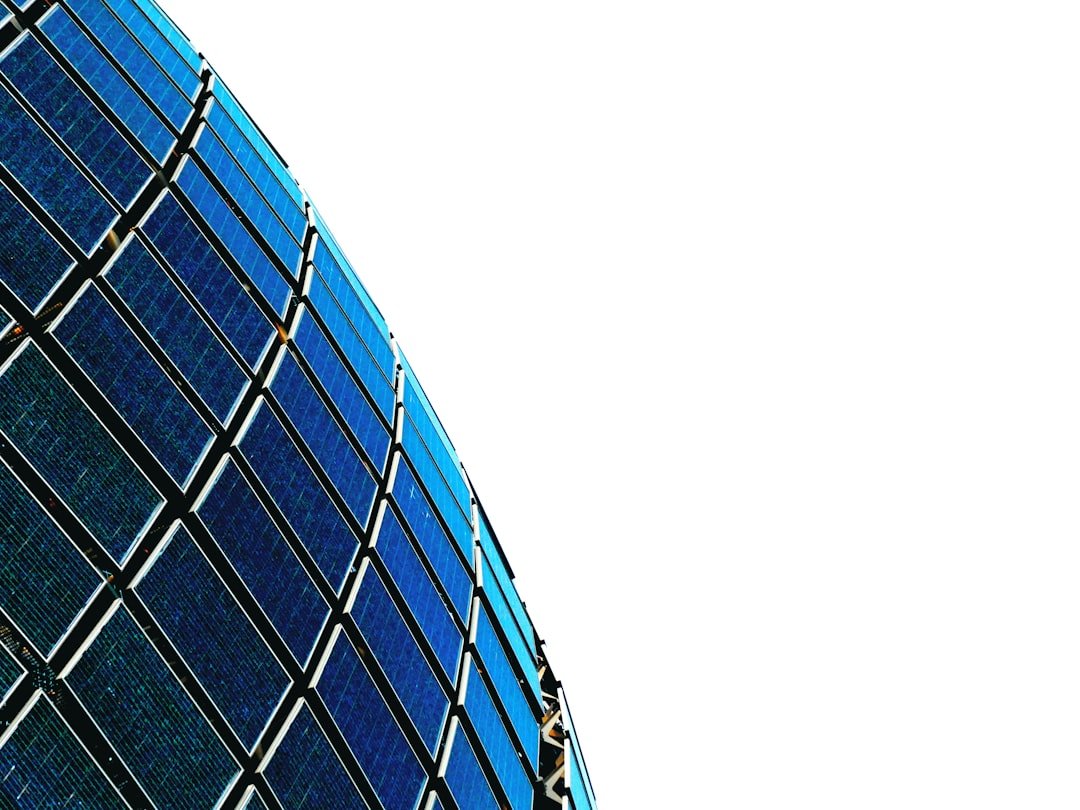The Essential Guide to Solar System Maintenance Solar energy systems are becoming more and more well-liked as an affordable and environmentally friendly energy source. However, to guarantee optimum performance and longevity, they need routine maintenance, just like any other technology. This post explores the many facets of solar system care, stressing the value of routine maintenance and offering helpful advice to both businesses and homeowners.
Key Takeaways
- Regular maintenance is crucial for the efficient functioning and longevity of solar energy systems.
- Checking and cleaning solar panels regularly helps to maximize energy production and prevent damage.
- Inspecting and maintaining batteries ensures optimal performance and extends their lifespan.
- Monitoring and managing energy usage helps to identify inefficiencies and optimize energy consumption.
- Inverter maintenance is essential for ensuring the smooth conversion of solar energy into usable electricity.
Solar energy systems require routine maintenance for a number of reasons. In the first place, it guarantees optimal system performance. Dust, debris, and other environmental conditions can eventually impair solar panels’ performance, resulting in lower energy output. Regular maintenance helps owners find and fix problems before they become more serious, increasing their return on investment. Also, routine maintenance can increase the solar components’ lifespan.
Solar systems benefit from routine inspections and maintenance, much like an automobile needs tire rotations & oil changes to run at its best. This preventative measure not only improves performance but also lowers the possibility of future, expensive repairs. To put it simply, getting regular maintenance ensures that the system will continue to produce clean energy for many years to come. Cleaning and inspecting the solar panels is one of the most important parts of solar system maintenance.
Debris like dust, dirt, and bird droppings can build up on the panels’ surface, blocking sunlight and decreasing their effectiveness. It is important to perform routine inspections in order to evaluate the panels’ state and spot any possible problems. Homeowners should keep an eye out for physical damage indicators like cracks or discoloration, as these could point to the need for replacement or repair. Solar panel cleaning is equally important.
| Aspect | Recommendation |
|---|---|
| Cleaning | Regularly clean solar panels to remove dirt and debris. |
| Inspection | Inspect the panels for any damage or wear and tear. |
| Trimming | Keep trees and bushes trimmed to prevent shading on the panels. |
| Monitoring | Regularly monitor the system’s performance and output. |
| Professional Maintenance | Hire a professional for annual maintenance and check-ups. |
Rain can often help wash away some debris, but manual cleaning might be required in places with high pollution or little rainfall. Sturdy dirt can be successfully removed without causing damage to the panels by using a soft brush or sponge & a mild detergent. In order to avoid water evaporating too quickly and leaving streaks or spots, it is best to clean the panels during the cooler hours of the day. Owners can guarantee optimal energy generation and efficient operation of their solar systems by keeping their panels clean.
Battery maintenance & inspection must be done on a regular basis for solar energy systems that use batteries. Batteries are essential for storing extra energy produced on bright days for use on cloudy or busy days. Overcharging, deep discharging, and temperature variations are some of the causes of battery degradation over time.
As a result, regular examinations are required to keep an eye on their performance and health. Owners should check for leaks, swelling in the battery casing, and corrosion on the battery terminals. Also, it’s critical to check the electrolyte levels in flooded lead-acid batteries because low levels can shorten their lifespan & performance. Maintaining batteries at the ideal temperature and cleaning terminals with a solution of baking soda and water can be part of routine maintenance. These actions can help owners maintain dependable energy storage capabilities & extend battery life.
Effective energy management and monitoring are essential parts of solar system upkeep. Homeowners can find areas for optimization by routinely analyzing their energy usage trends. Monitoring software that gives real-time information on energy production and consumption is included with a lot of contemporary solar systems. Owners can make well-informed decisions regarding their energy consumption patterns by examining this data.
Apart from keeping an eye on energy consumption, putting energy-saving techniques into place can greatly improve a solar system’s overall performance. Simple adjustments like employing smart home technology, modifying thermostat settings, and switching to energy-efficient appliances can lower overall energy consumption. Homeowners can minimize their dependency on the grid & optimize their solar investment by coordinating energy production and consumption, such as by operating large appliances during the hours of maximum sunlight.
Converting direct current (DC) produced by solar panels into alternating current (AC) used by home appliances, the inverter is an essential part of any solar energy system. To guarantee the inverter’s correct operation, routine maintenance is necessary. Homeowners ought to periodically examine the inverter’s display for any warning lights or error messages that might point to a problem.
Apart from visual examinations, it is recommended to maintain the inverter clean & clear of any dust or debris that might impede ventilation. Inverter failure is frequently caused by overheating, so it’s critical to make sure there is enough airflow around the unit. In the event that inspections reveal any problems or if the inverter is approaching the end of its warranty, it might be wise to seek professional advice for additional assessment or maintenance. Professional servicing is important. Professional maintenance also offers the chance to improve or upgrade the system.
Newer components may provide enhanced functionality or efficiency for current systems as technology advances. By hiring experts to conduct routine inspections, you can be sure that the system is operating safely & effectively while also ensuring peak performance. benefits of routine examinations. Frequent examinations by qualified professionals can assist in spotting possible problems before they become serious ones. By preventing expensive repairs and minimizing downtime, this can guarantee that the solar system keeps performing at its best.
Also, routine inspections can help the system last longer, ultimately saving homeowners money. Improvements and additions. For current solar systems, newer parts and technologies can provide better performance, features, and efficiency. Expert technicians are able to evaluate the system & suggest improvements or additions that will help the homeowner.
This may entail installing energy storage devices, switching to more energy-efficient panels, or putting smart monitoring technologies into place. tranquility of mind. By hiring experts to perform routine maintenance and inspections, homeowners can rest easy knowing their solar system is operating securely and efficiently. This can be particularly crucial for homeowners with complicated systems or those who are new to solar energy.
Homeowners can take advantage of renewable energy while lowering their risk & obligations by entrusting experts to maintain their solar system. When it comes to maintaining solar energy systems, safety should always come first. Homeowners should take the required safety measures to guard against any risks related to handling electrical components or working at heights. Gloves and goggles are essential pieces of safety equipment to wear when cleaning or inspecting solar panels.
People should also exercise caution when handling batteries because they run the risk of receiving an electric shock or being exposed to chemicals. To ensure safety when performing these tasks, it is essential to adhere to the manufacturer’s instructions for handling & maintaining batteries. A homeowner should seek professional help rather than run the risk of getting hurt if they ever feel uneasy doing maintenance tasks themselves. One of the most important parts of solar system maintenance is keeping thorough records of all repairs. A thorough record of all system upgrades, repairs, and inspections over time is provided by the documentation.
For monitoring performance trends and spotting reoccurring problems that might need attention, this data can be quite helpful. Also, if homeowners ever decide to sell their property, meticulous record-keeping can increase its resale value. Access to thorough maintenance records is frequently valued by potential purchasers since it shows duty and concern for the solar system. Homeowners can contribute to the long-term success of their system and make sure they are knowledgeable about its history by maintaining well-organized documentation.
In conclusion, maintaining solar energy systems on a regular basis is essential to their longevity and best performance. Every component, from cleaning & inspecting solar panels to keeping an eye on energy consumption & hiring professionals to perform inspections, is essential to keeping an effective system. Homeowners may maximize their investment in solar technology and benefit from clean energy by emphasizing safety measures and maintaining thorough records of maintenance operations.



